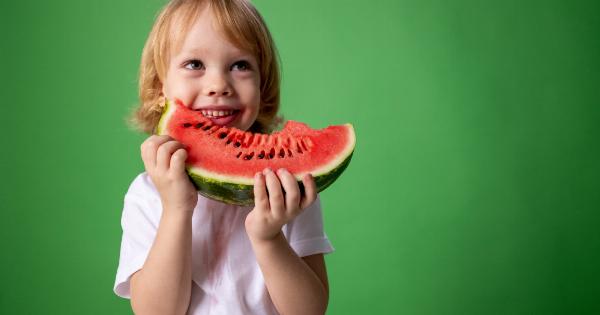Many people believe that the only way to get enough protein in their diet is by consuming meat. However, that is simply not true. Vegetarian diets can provide ample amounts of protein if one knows which plant-based foods to consume.
In fact, there are several surprising vegetarian high-protein foods that can easily replace meat in a diet. These protein-rich options not only provide the necessary amino acids but also offer a range of other essential nutrients.
1. Quinoa
Quinoa is a versatile grain that is packed with protein. With around 8 grams of protein per cup, quinoa is a complete protein source as it contains all nine essential amino acids.
It is also gluten-free, making it an excellent option for individuals with gluten sensitivities or those following a gluten-free diet. Quinoa can be used in various dishes, from salads to stir-fries, and even as a substitute for rice.
2. Lentils
Lentils are legumes that are not only affordable but also boast an impressive protein content. With approximately 18 grams of protein per cooked cup, lentils are an excellent meat replacement. They are also a significant source of fiber, folate, and iron.
Lentils come in various colors, including green, red, and black, and can be enjoyed in soups, stews, or incorporated into veggie burgers.
3. Chia Seeds
While small in size, chia seeds are mighty in terms of nutritional value. These tiny black or white seeds are an incredible source of plant-based protein, offering around 4 grams of protein per ounce.
Additionally, chia seeds are loaded with fiber, omega-3 fatty acids, and important minerals like calcium, magnesium, and phosphorus. They can be sprinkled over yogurt, added to smoothies, or used as an egg substitute in baking recipes.
4. Tempeh
Tempeh is a traditional Indonesian food that has gained popularity worldwide due to its high protein content. Made from fermented soybeans, tempeh provides about 30 grams of protein per cup.
It is also a rich source of probiotics, which are beneficial for gut health. Tempeh has a firm texture and nutty flavor, making it an excellent meat substitute for dishes like stir-fries, sandwiches, or even as a burger patty.
5. Greek Yogurt
Greek yogurt is a fantastic vegetarian option for those looking to increase their protein intake. With approximately 23 grams of protein per cup, Greek yogurt offers more protein than regular yogurt.
It is also known for being an excellent source of calcium, probiotics, and B vitamins. Greek yogurt can be enjoyed on its own, added to smoothies, or used as a base for dressings and dips.
6. Hemp Seeds
Hemp seeds are an excellent source of vegetarian protein, offering around 10 grams of protein per ounce. They are considered a complete protein as they contain all essential amino acids.
Hemp seeds are also abundant in omega-3 fatty acids, fiber, and minerals such as magnesium and zinc. They can be sprinkled on top of salads, incorporated into smoothies, or used in baking recipes.
7. Chickpeas
Chickpeas, also known as garbanzo beans, are a staple in many vegetarian diets. With approximately 15 grams of protein per cooked cup, chickpeas provide a substantial amount of protein. They are also a great source of fiber, iron, and folate.
Chickpeas can be used in a variety of dishes, including salads, hummus, stews, and even as a base for vegetarian curries.
8. Edamame
Edamame refers to immature soybeans that are harvested before they become hard. These green soybeans are commonly found in Asian cuisine and offer approximately 17 grams of protein per cooked cup.
Edamame is also rich in folate, vitamin K, and various minerals. It can be enjoyed as a snack, in stir-fries, or added to salads for an extra protein boost.
9. Seitan
Seitan, also known as wheat meat or wheat gluten, is a popular meat substitute among vegetarians. It is made from gluten, the main protein in wheat.
With around 25 grams of protein per 3.5-ounce serving, seitan is an excellent source of plant-based protein. It is often used in dishes like stir-fries, sandwiches, or as a filling for vegetarian sausages.
10. Spirulina
Spirulina is a blue-green alga considered one of the most nutrient-dense foods on the planet. It contains about 4 grams of protein per tablespoon and is packed with essential amino acids.
Additionally, spirulina is rich in iron, B vitamins, and antioxidants. It can be consumed as a supplement or added to smoothies and juices for an extra protein and nutrient boost.
Conclusion
Vegetarian diets can provide all the necessary protein without consuming meat.
The key is to include a variety of protein-rich plant-based foods like quinoa, lentils, chia seeds, tempeh, Greek yogurt, hemp seeds, chickpeas, edamame, seitan, and spirulina. These surprising vegetarian high-protein foods offer numerous health benefits, including essential amino acids, fiber, vitamins, and minerals.
By incorporating these foods into a well-balanced vegetarian diet, individuals can meet their protein needs and maintain a healthy lifestyle.





























